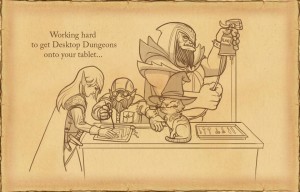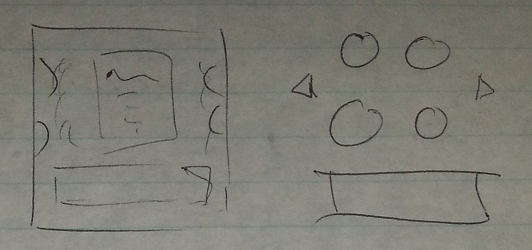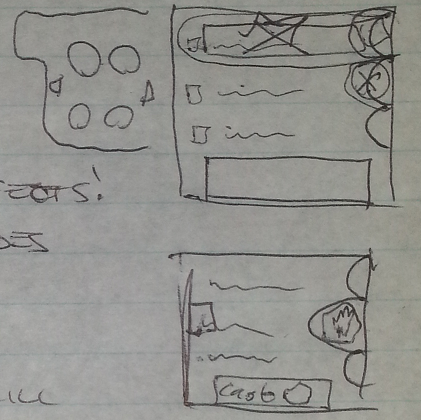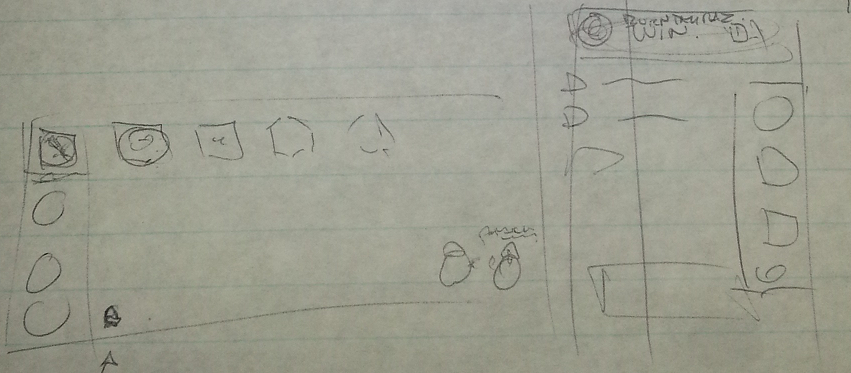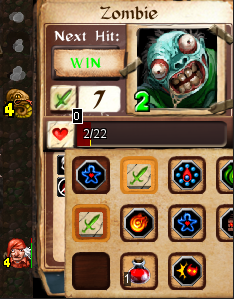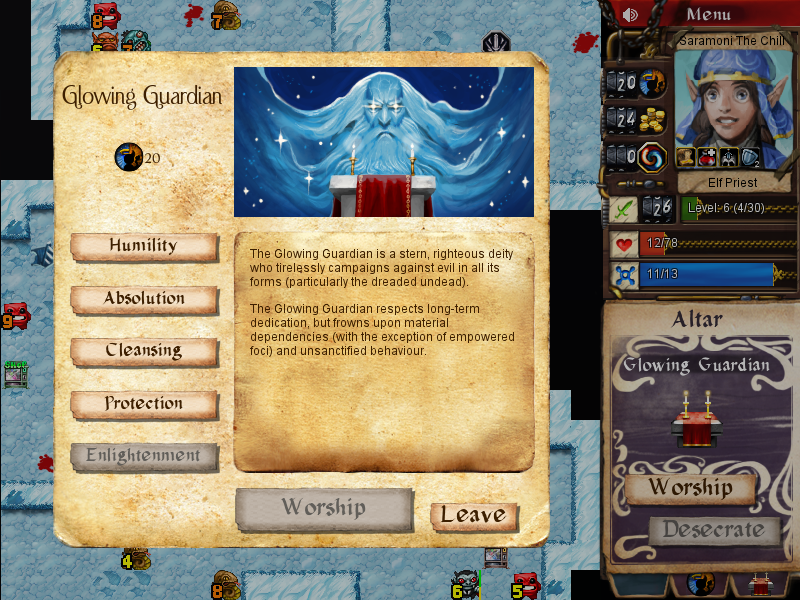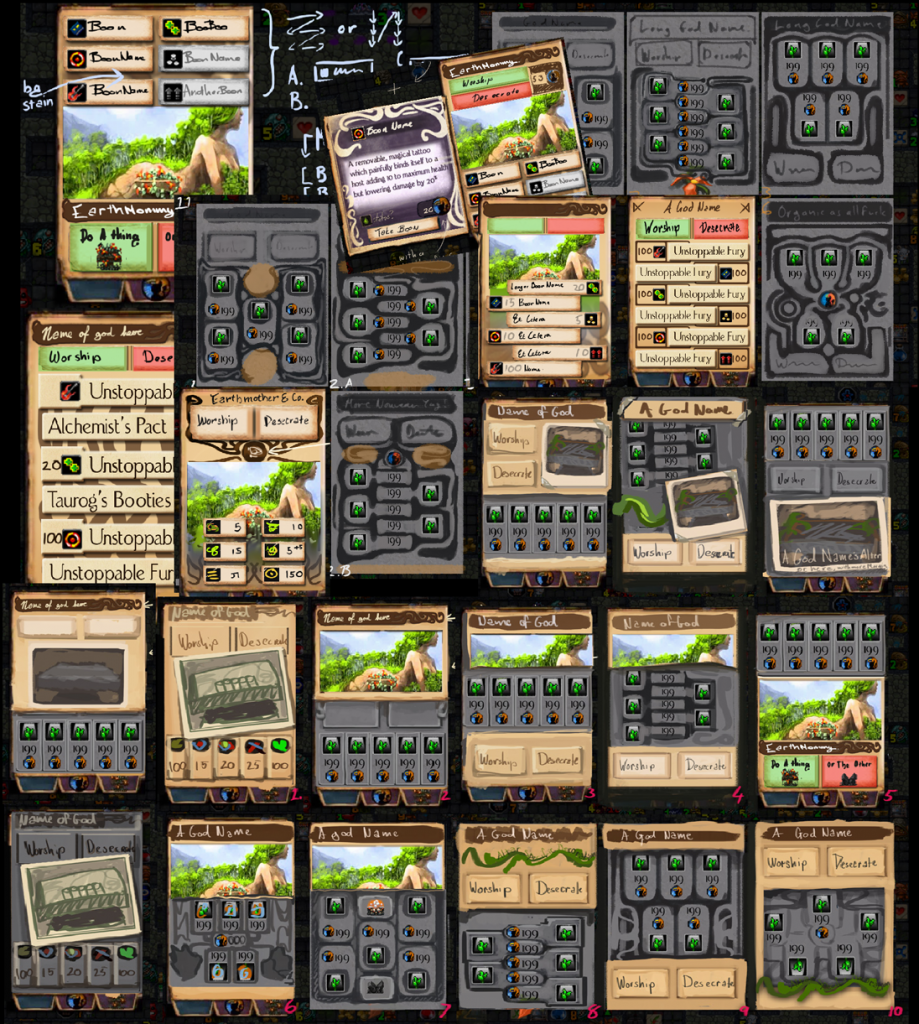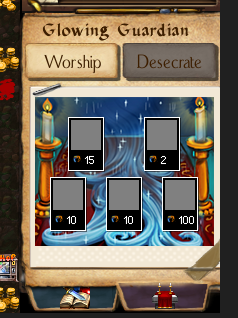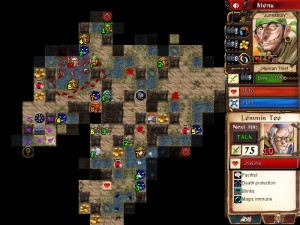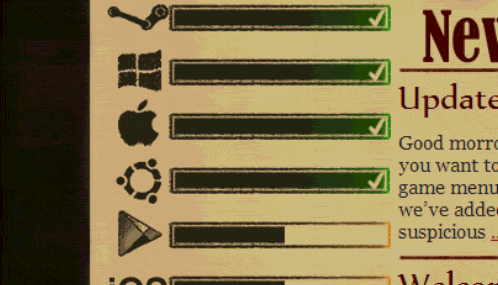Ahoy there friends and fans of Desktop Dungeons! The four of us have just gotten back from the Game Developers Conference in San Francisco. Dorianne has been before and Danny and Marc have been making the annual pilgrimage for several years now, but this was my first year (of many I hope). It was a special experience for me and although I am jet-lagged and weary; I must write! Sometimes writing is the only way I can collect all my thoughts, so here goes; this is my thought collection:
The last time I travelled outside of Africa I was young, too young perhaps to make the most of the experience. So this trip was obviously exciting for regular travel reasons. I flew in fancy aeroplanes, I cycled over the Golden Gate bridge, I snowboarded in Tahoe (we don’t get that in South Africa), I ate foods and absorbed cultures that I’m not used to and I did a great number of other interesting travelly* things.
However, those are experiences and feelings that you can get from any trip really. GDC meant so much more to me.
WARNING: SOME PERSONAL HISTORY AND FEELINGS AHEAD
I decided at quite a young age that I wanted to make video games. I’d found it, and it was fun, and I would make my career out of it. But I never really knew what being a game developer actually meant. I never knew what kind of lifestyle or career path would actually await me. I just knew that I liked making video games, and that I could get good at it if I stuck with it.
I could never have predicted that possibly the most special thing about making video games, is the other people who are doing it.
I’ve never really been a people person. I’ve always been shy and introverted. Socialising and seeing people can often take a lot of my energy. But games people are different, for whatever reason, other developers give me energy. And what a difference that makes.
I was in my early teens when I started getting involved in the South African game development scene. It was scary and everyone was older than me, but I always felt welcome. Everyone was friendly and everyone helped me as much as they could. That was great.
I wasn’t just lucky to meet the right people, everyone is great. Years later MGSA (the local gamedev association) meetups started happening, I felt awkward and introverted again. I didn’t know that many people and often found myself feeling out of place amongst the success stories and brilliant minds. I didn’t believe in myself enough, and although those evenings were motivating, they were also energy sapping.
After I started working in the industry, things began to change. I began feel like I was a real game developer. I began to feel that I was actually good at this thing that I had devoted so much of my life to. I lost some of my inhibitions and the MGSA meetups became a thing that I looked forward to with great eagerness. I got to hang out with all my friends and recharge my motivational batteries. These days, chatting with other devs energises me like nothing else, and reaffirms my love for my work.
So what does this have to do with GDC? Well GDC was like all the uplifting parts from those previous paragraphs but on steroids. I’ve been getting more and more involved in the global indie community over the last two years, and it’s been an incredible experience. I consider the indie community (and the local scene in particular) as my second family. Such is the way we help each other and care about each other.
Over the course of GDC I met and hung out with so many amazing people. I met the developers of many of my favourite games and made new friends everywhere I went. Each day I was just blown away with how great everyone was and how much we had in common. It was glorious to spend a week or so meeting new people and liking everyone I met.
It was surreal. I’ve found my tribe and that makes me unbelievably happy.
So now that the soppy story is off my chest, I’d like to highlight a few of my favourite moments from the trip, in no particular order:
GDC running club
Adam and Rebekah Saltsman (who are awesome!) organise a run to the pier every morning of the conference at 8AM. It was a monumental effort to haul myself out of bed at 7:30 (after getting into it just a few hours earlier), but it was totally worth it. Cool people, a nice way to experience the city, and I always felt amazing afterwards.
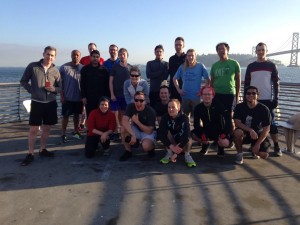
Indie breakfast
We stayed in the indie hostel, which means at breakfast time, you can sit down and any random table and just ask people what games they made. By far one of the easiest ways to meet cool people that I’ve ever experienced. Also, cream cheese and jam bagels!
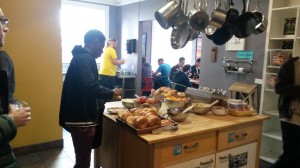
The quieter parties
These nights were absolutely incredible. I went round from person to person introducing myself and then being blown away as people revealed they were the ones behind so many of my favourite games! My mind was blown so frequently that I began to just expected something amazing every time I sidled up to someone new. And most of them have played or heard of Desktop Dungeons too!
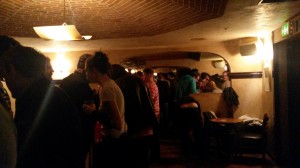
Wild Rumpus party
This party has a reputation for being amazing and it didn’t let me down. I’m not usually one for loud clubs and partying, but instead of being filled with smoke and dude bros, the place was just packed with people that I liked. I barely got to spend any time talking to all those great people because I spent pretty much the whole night dancing at the front of the crowd. I was having such a good time that I didn’t care, and was genuinely surprised when it was suddenly 2AM and we were kicked out of the venue.
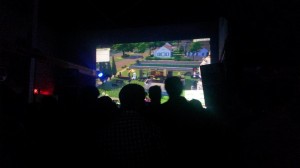
GameLoading premier
This movie felt a lot like “My friends and what we do – the movie”. It hit home. Even more so because I watched with a whole bunch of people starring in the film itself! My good friends Colin and Sarah Northway sat just behind, and Zoe Quinn sat a couple of seats to my right. What a bizarre and fascinating way to experience a documentary!
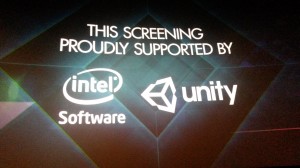
IGF awards
The sheer scale of this event blew me away. 10000 developers packed in a massive hall, the lights, the sounds, the drama… it’s huge! These are the Oscars of indie game development and it was awe inspiring to witness. It was also special because Desktop Dungeons won an IGF in 2011. I kept thinking “Wow! Four years ago it was you guys sitting down there at the nominees’ tables. And it was Desktop Dungeons that was the name inside the envelope! And it was you who went up to stammer out a surprised acceptance speech in front of all these people!”. Amazing. I’ll never look at that glass trophy in the QCF office quite the same way again. I’ve never cared for accolades and awards much, and I’ve never really even sought or thought much about recognition. But now I really want to win an IGF, just for that experience. (And also to further legitimise my gloating over the Vlambeer guys who have never won one.)
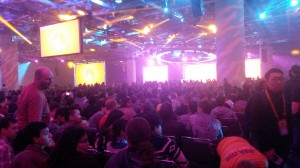
Travelling with my friends
This is a no brainer, but seriously, what a great group. Ya’ll are awesome and thanks for everything. I <3 you guys.
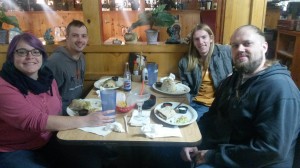
Snowboarding
So this is not really GDC related, but it was just too much fun. If you ever get the chance, go get on a snowboard and learn to ride it down a snowy mountain. It’s a blast. I learned quickly and spend the rest of my time taking the biggest and quickest lifts all the way to the top of the mountain and then riding all the way back down again in one massive long run. Superb fun.

Systems design roundtables
I guess I should mention something about the actual GDC sessions: I had an all access pass and they were great. I only discovered these roundtables quite late, but the ones I went to were insanely useful. I think about game design a lot, and having a room full of big name AAA designers discussing interesting themes and sharing great tips and ideas was brilliant. Next year these will be the first things I check out.
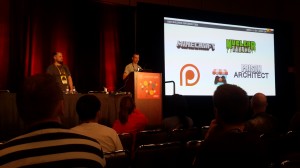
Biking the bridge
The day after the conference ended Danny and I rented bikes, met up with a bunch of other cool devs and rode along the coast, over the Golden Gate and down into Sausalito. After lunch we rode to the forest to see the great California redwoods and then rode back in time to catch the ferry back across the bay and past Alcatraz. From there we took a tram to Chinatown for the chinese new year parade and celebrations. Needless to say it was an amazing day. Rad people, rad places, rad itinerary.

Indie common room
I made a point out of being as sociable as possible. I didn’t want to miss any opportunities and forced myself to go hang out in the common room late at night when it would have been much easier to just go to sleep. I’m not sure how I managed to have so much energy during the trip (considering the serious sleep deprivation most days), I think my body was just running on pure adrenalin for the entire conference? Anyway, the common room at the indie hostel was always filled with cool people playing games, making games and just hanging out. I met some of my favourite new friends there and never once regretted turning down the convenient option of sleeping.
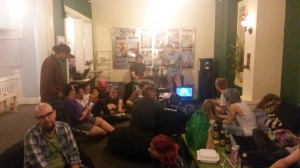
Alt.ctrl.GDC
Walking around the expo floor was a strange experience for me. I felt strangely disconnected from the AAA scene. With their massive stands and their shirts that say “DEV TEAM” on the back. It felt like a different industry. It felt very commercial, with none of the family feelings that I got from the indie crowd. So when I found the Alt.ctrl.GDC booth I immediately thought “This is where it’s at! These are the people who are really innovating, they get it.”. The display consists of a bunch games with unique custom controllers. Some games require you to high-five another player, others require you to plant your face in the butt of a plushie dog. Line wobbler in particular, is absolutely brilliant. I liked these games, they were interesting when most of the show floor was not.
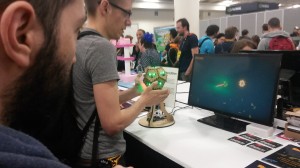
And finally, a word about imposter syndrome:
This is a thing that plagues indie game development. Very few people succeed, and when they do they often become the most visible and outspoken people in the community. But the vast majority of us learn the hard way that being an indie dev is not a smart career choice. Most people languish in self-doubt, obscurity and financial insecurity. And so when you go to something like GDC and you meet your heroes, idols and community pillars, it’s easy to feel unworthy. It’s easy to weigh up your achievements against those who you look up to and admire.
I say hogwash.
As an introverted video game programmer, one thing I’m good at is rationalising my emotions. Imposter syndrome isn’t a useful feeling, so force yourself to forget about it. Force yourself to be more outgoing and to meet people. You’ll realise that everyone else is just somebody who likes making games and likes people who makes games. You make games, you are one of those people. It doesn’t matter what you’ve made or how successful it is, you’re part of the family already, just embrace that. I have and I feel great about it.
Anyway, GDC is great, everyone is great. Everyone should go to GDC if they get the chance.

*May not be an actual word.

